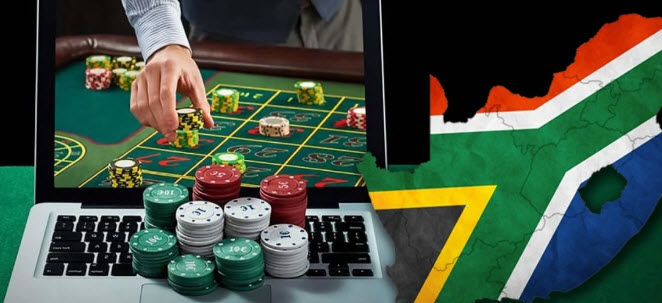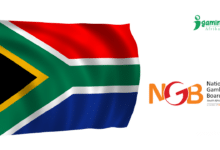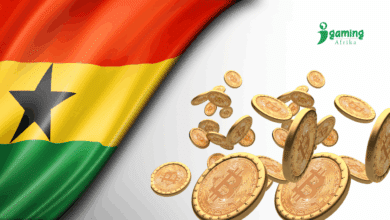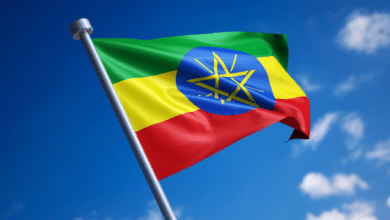Gambling Procedures for Licensing, Taxation, Gaming Regulation in South Africa – Full Guide

Land Based Gambling
Gambling is regulated concurrently on a national and provincial basis. Casino gambling (including poker rooms, slot machines and table games, etc), limited payout machines (LPMs) and bingo (including electronic bingo terminals (EBTs) is permitted, provided that the relevant licences are obtained from the relevant provincial regulator, in compliance with the norms set by the national regulator. Gambling South Africa
Licensing criteria
The National Gambling Act requires any person who wishes to conduct a gambling activity (including bookmakers) to obtain a licence from the relevant provincial authority. It further requires that gambling activities may only be engaged in, conducted or made available in, on or from premises that have been licensed for that purpose. The licence must, among other things, name or describe the specific premises in, on or from which the licensed activity may take place.
Under the National Gambling Act, provincial gaming boards have exclusive jurisdiction within their respective provinces to investigate, consider and issue provincial licences for casinos, racing, gambling or wagering, to the extent that this is provided for in the respective provinces’ provincial gambling legislation.
Only a ‘juristic person’ (ie, an incorporated body such as a company) may be licensed:
- to operate a casino;
- as a ‘route operator’ (a person licensed to roll-out LPMs or EBTs, or both, to sites operated by third parties);
- as a manufacturer of gambling devices;
- as a testing agent of gambling devices;
- as a totalisator operator; or
- under any other category of licence, to the extent that applicable provincial law so requires.
The National Gambling Act requires a licence issued by a provincial regulator or board to comply with certain formalities, including, among other things, to specify the identity of the licensee and the activities that the licensee is permitted to engage in, conduct or make available to the public.
A provincial board is required to consider the proposals made, if any, by the applicant for a licence in respect of social commitments (ie, black economic empowerment or combating the incidence of addictive problem gambling) as well as potential socio-economic effects on the community. In this regard, the board may choose to include conditions, placing obligations on the applicant in respect of these issues, in issuing a licence.
Casinos
The number of casino licences that may be issued by the provincial gambling boards has been limited to a total of 41 licences, with maximum numbers allocated to each province. Most of the licences have been issued, as follows:
- Eastern Cape: five allocated licences and four issued licences;
- Free State: four allocated and issued licences;
- Gauteng: seven allocated and issued licences;
- KwaZulu-Natal: five allocated and issued licences;
- Limpopo: three allocated and issued licences:
- Mpumalanga: four allocated licences and three issued licences;
- Northern Cape: three allocated and issued licences:
- North West: five allocated licences and four issued licences; and
- Western Cape: five allocated and issued licences.
Prospective casino operators cannot merely apply for a casino licence, and casino licences can either be obtained through an application in response to a provincial gambling board issuing a request for application or through the acquisition of an existing casino licence:
- In the former instance, the provincial gambling board will issue a request for applications, and interested parties can submit applications, together with the applicable application fee (payable to the relevant gambling board), plans, documents, approvals and information as may be prescribed or determined by the relevant gambling board. The provincial gambling regulator has the authority to issue the licence to the applicant that best meets the bid requirements, or not to issue it if the bid requirements have not been met.
- In the latter instance, a person may acquire control of an entity to which a licence has already been issued. The acquiring party must then apply to the relevant provincial gambling board for a transfer of that licence or approval of that acquisition. Provincial legislation requires that the acquisition of a financial interest of 5 per cent or more in an existing licence holder must be approved by the relevant gambling board.
In either case, approval for transfer of or application for a licence is subject to probity checks, to be performed on the applicant, its shareholders, company officials and employees.
A licence will stipulate the number of ‘gaming positions’ the casino will be permitted to maintain. If a casino, at a later stage, wishes to increase its number of licensed gaming positions, it must apply to the relevant gambling board and will have to tender a fee in bringing its application. Gambling South Africa
The number of gaming machines offered by casinos in South Africa is typically between 200 and 2,000 slot machines. There is no limit on the maximum stake or payout for slot machines in casinos. Regulations require that slot machines have a theoretical and demonstrable return to players of not less than 80 per cent. Each game and gaming machine is subject to pre-approval by the relevant gaming board before it may be deployed in a casino. The casino operator is required to apply for and obtain licences for all gaming machines to be operated on the premises of the casino and to register each individual machine with the Central Electronic Monitoring System.
Table games and the rules of each game must be pre-approved by the provincial gaming regulator.
LPMs
LPMs are slot machines located at venues whose core business is not centred around gambling activities. These venues, which must be licensed as ‘site operators’ (typically pubs, taverns and sports clubs) make use of LPMs as an ancillary offering to their main business. It is a requirement of the National Gambling Act that LPMs function as an ancillary offering to the main business of the site operator, providing additional revenue to the site operator.
Various factors are taken into account to determine this, including the revenue earned by the business, the floor space occupied by the LPMs and the amount of time taken up by the administration of the LPMs in contrast to that of the primary business.
The LPMs themselves are licensed to route operators who manage and operate LPMs in conjunction with site operators. The total number of LPM units that may be active in South Africa is prescribed by regulation and is capped at 50,000, which is allocated between the provinces. Despite LPMs being allocated to every province, not every province has issued route operator licences for LPMs.
Both site operators and route operators require licences to engage in the LPM business. Both of these are granted by provincial gambling boards on application. However, in the case of a route operator’s licence, a prospective applicant must wait for the relevant board to issue a request for applications. Typically, route operators then seek out and appoint site operators, which are licensed, as LPMs are rolled out.
Applicants must provide that the LPMs will not constitute the main focus of their business activities, as well as satisfy certain other requirements relating to the fitness of the proposed premises on which the LPMs will be situated. Site operators operate under licence from route operators and may only acquire LPMs from the route operators.
The maximum number of LPMs that may be operated from any particular site is ordinarily five; however, a site operator may apply for approval to operate up to 40 LPMs in some provinces where the provincial regulations allow for this.
The maximum stake and payout in respect of LPMs is capped at 5 rand and 500 rand, respectively.
Bingo
Traditional bingo and bingo played through electronic means (ie, via EBTs) are regulated under the National Gambling Act. In South Africa, bingo is generally provided through EBTs, which are situated either in casinos, in which case conditions relating to bingo will be written into the relevant casino licence, or bingo halls; therefore, in accordance with the provincial legislation, a person must be in possession of either a bingo licence or a casino licence to offer bingo gambling services.
In certain provinces, no request for applications from the provincial regulator is required for a person to apply for a bingo licence. In certain provinces (such as Mpumalanga), an application for a bingo licence can only be made in response to a request for application.
The maximum stake that may be placed on bingo games and the required ‘return to player’ ratios are determined in provincial legislation.
Bookmakers
The National Gambling Act defines a ‘bookmaker’ as a person who directly or indirectly lays fixed-odds bets, or open bets, with members of the public or other bookmakers or takes such bets with other bookmakers.
Certain provincial gambling regulators permit bookmakers to take bets online. For example, the Western Cape Racing and Betting Rules of the Board (the Western Cape Rules) set out provisions that relate to betting and racing, including the recording of bets on licensed premises by the holder of a bookmaker licence, wagering record-keeping software and licensing generally. In particular, under Rule 4, the holder of a bookmaker licence must make use of a computerised record-keeping system for the processing of betting transactions and no manual record-keeping system is permitted for the processing of betting transactions on a licensed bookmaker premises.
The Western Cape Rules specifically acknowledge that bets may be placed or accepted via telephone, cellular phone, the internet or any other electronic media and that, in some instances, bets may by accepted or processed on a 24-hour basis on licensed premises by means of computer software, which operates independently and requires no supervision and minimal maintenance, subject to the computer software being approved by the Western Cape provincial gambling board.
A bookmaker’s licence may only be obtained by making an application in response to a request for applications, although requests for applications are not frequently issued in the provinces.
The main portion of bets taken by bookmakers relate to sporting events, including, but not limited to, horse racing, rugby, cricket, soccer and golf. Bets may be placed on both local and foreign sporting events, to the extent that these sports are lawful and acceptable according to South African law and public policy. More recently, bookmakers have started offering bets on the outcomes of gambling games.
Director, officer and owner licensing
Certain categories of the gambling operator’s employees are required to hold a provincial licence, depending on the work the employees are to engage in. The National Gambling Act prohibits a gambling operator from employing a person who does not possess the required licence or licences.
Probity checks are a mandatory part of the licensing regime for all directors and financial interest holders in licensees.
Location
The prevailing business model for casinos in South Africa entails an entire array of different entertainment experiences. Casinos, and casino resorts in particular, also offer a wide array of non-gambling amenities and satisfy more than just the gaming needs of their guests. These other offerings can include food and beverages (including various restaurants and bars, usually ranging from fine dining to quick service restaurants), night clubs, arcade games, movies, theatres, ice rinks, sports facilities, golf courses, bowling alleys, hotel accommodation, conferencing and banqueting facilities, live entertainment and events. In summary, casinos in South Africa provide a product and service offering that extends further than simply slots and tables.Passive/institutional ownership
Responsible gambling
In terms of the National Gambling Act, a national register of ‘excluded persons’ who are prohibited from engaging in gambling activities is maintained by the National Gambling Board. The National Gambling Board must continuously make this register available to each provincial gambling authority and all licensed gambling operators. Licensees and provincial gambling boards must assist any person wishing to register as an excluded person.
Persons who wish to be prevented from engaging in any gambling activity may register as an excluded person by submitting a notice to that effect in the prescribed manner and form at any time (which may only be cancelled after a specified period). The court may order a person to be registered as an excluded person on application by that person or a family member, dependant or guardian of that person.
A licensed gambling operator may not knowingly permit an excluded person to enter into a designated gambling area, operate a gambling machine or gambling device or otherwise engage in a gambling activity within its premises. A licensee must take measures to accurately determine whether a person is an excluded person before permitting a person to engage in a gambling activity. Gambling South Africa
Taxes
What type of tax and what tax rate applies to each form of lawful land-based gambling activity?
Different taxes apply in each province and in respect of different forms of gambling. The different gaming taxes applicable per province is set out in the table below.
| Applicable tax | Tax rate |
| Eastern Cape | |
| Casino gaming tax | Where the taxable revenue in the tax period does not exceed 4 million rand: 3 per cent of each rand of taxable revenue.Where the taxable revenue exceeds 4 million rand but does not exceed 8 million rand: 120,000 rand plus 5 per cent of the amount by which the taxable revenue exceeds 4 million rand.Where the taxable revenue exceeds 8 million rand: 320,000 rand plus 10 per cent of the amount by which the taxable revenue exceeds 8 million rand. |
| Route operator gaming tax | In respect of the taxable revenue in any tax period for any amount of tax calculated at the rate of 10 per cent for each rand of the taxable revenue. |
| Bingo gaming tax | In respect of the taxable revenue in any tax period for an amount of tax calculated at the rate of 10 per cent of each rand of taxable revenue. |
| Totalisator gaming tax | In respect of the taxable revenue in any tax period for an amount of tax calculated at the rate of 10 per cent of each rand of the taxable revenue. |
| Bookmaker gaming tax | A total of 6 per cent on winning bets payable as 3 per cent to the Provincial Revenue Fund and 3 per cent to be divided as prescribed between the holder of racecourse licences in the province shall be charged, levied and collected by every person who placed a winning bet on any event or contingency, include a horse race. |
| Free State | |
| Casino gaming tax | 7 per cent of the licensee’s gross gaming revenue. |
| Limited gaming machine operator tax | 12 per cent of the licensee’s gross gaming revenue. |
| Limited gaming machine site tax | 12 per cent of the licensee’s gross gaming revenue. |
| Bingo gaming tax | 10 per cent of the licensee’s bingo revenue. |
| Bookmaker gaming tax | 6 per cent on winning bets, deducted from winnings before being paid out. |
| Gauteng | |
| Casino gaming tax | 9 per cent of the licensee’s gross gaming revenue. |
| Route operator gaming tax | 15 per cent of the licensee’s gross gaming revenue. |
| Bingo gaming tax | 12 per cent of the licensee’s gross gaming revenue. |
| Gaming machine gaming tax | 15 per cent of the licensee’s gross gaming revenue. |
| Totalisator gaming tax | 6.5 per cent of the licensee’s gross gaming revenue. |
| Bookmaker gaming tax | 5 per cent of the licensee’s gross betting revenue derived from betting on events or contingencies other than horse racing.6 per cent of the gross betting revenue derived from horse racing. |
| KwaZulu-Natal* | |
| Casino gaming tax | Where monthly gross gaming revenue does not exceed 30 million rand: 9.5 per cent of gross gaming revenue.Where monthly gross gaming revenue exceeds 30 million rand: 12.5 per cent of gross gaming revenue. |
| LPM gaming tax | 15 per cent of gross gaming revenue. |
| Bingo gaming tax | 3 per cent of gross gaming revenue. |
| Bookmaker gaming tax: horse racing | 6 per cent of the amount won by a bettor, 3 per cent of which must be paid to the Provincial Revenue Fund and 3 per cent to the racecourse operator. |
| Bookmaker gaming tax: other contingencies | 6.5 per cent of the bookmaker’s gross profits on all betting transaction entered into by that bookmaker on sporting events, other events or contingencies, or any combination thereof. |
| *Legislation to revise the tax imposed in KwaZulu-Natal on gambling and gaming was proposed in December 2021. The KwaZulu-Natal Gaming and Betting Tax Amendment Bill 2021 proposed increases or changes to the existing taxes imposed on licensed operators and changes to the allocation of certain payments. The draft legislation is still in the process of consideration by the KwaZulu-Natal provincial government. | |
| Limpopo | |
| Casino gaming tax | 8.5 per cent of the licensee’s gross gaming revenue. |
| Route operator gaming tax | 10 per cent of the licensee’s gross gaming revenue. |
| Site operator gaming tax | 10 per cent of the licensee’s gross gaming revenue. |
| Bingo gaming tax | 8.5 per cent of the licensee’s gross gaming revenue. |
| Totalisator gaming tax | 7 per cent of the licensee’s gross gaming revenue. |
| Bookmaker gaming tax | 6 per cent of player winnings. |
| Mpumalanga | |
| Casino gaming tax | Where the licensee’s monthly gross gaming revenue is not more than 10 million rand: 5 per cent of each rand.Where the licensee’s monthly gross gaming revenue is more than 10 million rand but does not exceed 15 million rand: 500,000 rand plus 7.5 per cent of the amount exceeding 10 million rand.Where the licensee’s monthly gross gaming revenue exceeds 15 million rand: 875,000 rand plus 10 per cent of the amount exceeding 15 million rand. |
| Route operator gaming tax | 10 per cent of gross gaming revenue. |
| Independent site operator gaming tax | 10 per cent of gross gaming revenue. |
| Bingo gaming tax | 8 per cent of gross gaming revenue. |
| Totalisator gaming tax | 2.5 per cent of the gross takings of the totalisator and 10 per cent on the undistributed takings and unclaimed dividends, respectively, of that totalisator. |
| Bookmaker gaming tax | In relation to winning bets struck on any horse racing event: 6 per cent of the winnings.In relation to winning bets struck on any sporting events other than horse racing: 6.5 per cent of the gross profit generated in respect of all such transactions entered into during each tax period. |
| Northern Cape | |
| Casino gaming tax | Gambling levy of 8 per cent on the gross win derived from gambling conducted under the licence. |
| Route operator gaming tax | Gambling levy of 8 per cent on the gross win derived from the gambling conducted under the licence. |
| Site operator gaming tax | Uncertain, as the levies have not been stipulated in the regulations. |
| Bingo gaming tax | Gambling levy of 8 per cent on the gross win derived from gambling conducted under the licence. |
| Totalisator operators’ tax | Gambling levy of 8 per cent on the gross win derived from gambling conducted under the licence. |
| Bookmaker gaming tax | Gambling levy of 8 per cent on the gross win derived from gambling conducted under the licence. |
| North West | |
| Casino gaming tax | Where monthly gross gaming revenue does not exceed 6 million rand: 6 per cent of taxable revenue.Where monthly gross gaming revenue exceeds 6 million rand but is less than 10 million rand: 360,000 rand plus 8 per cent of the amount above 6 million rand.Where monthly gross gaming revenue exceeds 10 million rand but is less than 15 million rand: 680,000 rand plus 10 per cent of the amount above 10 million rand.Where monthly gross gaming revenue exceeds 15 million rand: 1.18 million rand plus 12 per cent of the amount above 15 million rand. |
| Route operator gaming tax | 8 per cent of gaming revenue. |
| Site operator gaming tax | 8 per cent of gaming revenue. |
| Bingo gaming tax | 8 per cent of bingo revenue. |
| Totalisator gaming tax | 7 per cent of gross takings of the totalisator |
| Bookmaker gaming tax | 6.5 per cent of the betting revenue. |
| Western Cape | |
| Casino gaming tax | Where the taxable revenue in the tax period does not exceed 14.2 million rand: 8 per cent of each 10 rand of the taxable revenue.Where the taxable revenue in the tax period exceeds 14.2 million rand but does not exceed 28.4 million rand: 1.136 million rand plus 10.5 per cent of the amount by which the taxable revenue exceeds 14.2 million rand.Where the taxable revenue in the tax period exceeds 28.4 million rand but does not exceed 42.6 million rand: 1.627 million rand plus 13 per cent of the amount by which the taxable revenue exceeds 28.4 million rand.Where the taxable revenue in the tax period exceeds 42.6 million rand but does not exceed 56.8 million rand: 4.473 million rand plus 15 per cent of the amount by which the taxable revenue exceeds 42.6 million rand.Where the taxable revenue in the tax period exceeds 56.8 million rand but does not exceed 71 million rand: 6.603 million rand plus 17 per cent of the amount by which the taxable revenue exceeds 56.8 million rand.Where the taxable revenue in the tax period exceeds 71 million rand: 9.017 million rand plus 19 per cent of the amount by which the taxable revenue exceeds 71 million rand. |
| LPM gaming tax | Where the taxable revenue in the tax period does not exceed 10 million rand: 10 per cent of each rand of the taxable revenue.Where the taxable revenue in the tax period exceeds 10 million rand but does not exceed 20 million rand: 1 million rand plus 12.5 per cent of the amount by which the taxable revenue exceeds 10 million rand.Where the taxable revenue in the tax period exceeds 20 million rand but does not exceed 30 million rand: 2.25 million rand plus 15 per cent of the amount by which the taxable revenue exceeds 20 million rand.Where the taxable revenue in the tax period exceeds 30 million rand: 3.75 million rand plus 20 per cent of the amount by which the taxable revenue exceeds 30 million rand. |
| Bingo gaming tax | Where the taxable revenue in the tax period does not exceed 2 million rand: 10 per cent of each 10 rand of the taxable revenue.Where the taxable revenue in the tax period exceeds 2 million rand: 200,000 rand plus 15 per cent of the amount by which the taxable revenue exceeds 2 million rand. |
| Bookmaker gaming tax | In relation to winning bets struck on any horse racing event: 6 per cent of winnings.In respect of any winning bets struck on any sporting events other than horse racing: 6.5 per cent of the gross profits generated. |
In addition to these taxes, various other fees may be levied by a provincial gambling regulator, and these fees are updated and changed from time to time.
Courtesy: Lexology LLP Gambling South Africa























